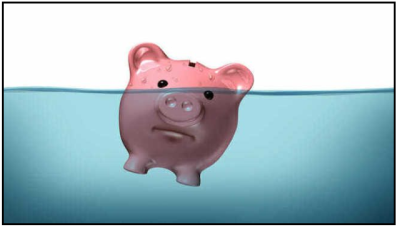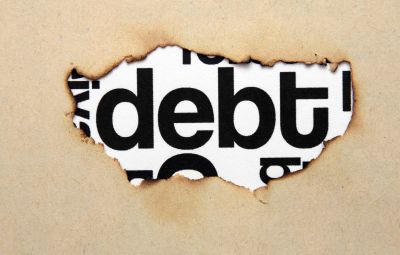A Guide to Debt Management Solution for Any Reason

The word debt is probably the one four-letter word that everyone agrees is a bad one.
No one wants it but it seems like everyone has it. While it is common, you probably do not want to stay buried under a mountain of debt, so let’s find a way to start digging you out of it.
Step-By-Step Debt Management Planning
No one has the exact same debt situation, so not everyone is going to make the same exact moves. However, there are some basic steps that everyone can take by customizing them to your own situation.
List Your Debts
You cannot decide how to deal with debt if you do not know what debt you have. You need to make a list of your debts, the interest, the balance due, and so forth. Pen and paperwork, but a paper list is difficult to reorganize if you need to.
The easiest way I have found to organize debts is by using the Debt Payoff Planner app. Once all of your information is in, you can move debts around, view charts and graphs, and even use the plan that the app creates for you.
Choosing a Plan of Attack
It is absolutely possible to manage and pay off your debts on your own but to do so, you should have a plan of how you will do it. You have probably heard of the debt snowball and maybe the debt avalanche. They are two ways in which people pay off debt.
The snowball means that you pay the debts in order from the smallest balance to highest, regardless of interest or any other details, while paying minimum balances on everything else. The idea is to get some quick wins so you are motivated to continue.
The avalanche means that you start paying off the highest balances first. This makes a huge impact on your credit almost immediately. However, depending on the amount of your highest debt, it may take a while to get it paid. It is usually better to use the avalanche if you are about to get a raise, tax refund, and so on.
Both the avalanche and the snowball are useful tools that give you a map to get out of debt. If you use a debt tracker like the Debt Payoff Planner app, you have the option to have the debts listed in either order.
If looking at your debt is making you cringe and you want a bigger impact more quickly, or you just need some help, there are a few options.
1. Debt Settlement
Debt settlement is when the creditor agrees to accept less than you owe. You can hire a company to do this for you, but you can also call the creditors and do it on your own- and save money in the process. It’s as easy as 1-2-3:
- Pick the first debt on your list.
- Call the creditor and ask if they can lower your balance.
- Pay the new balance.
Really, it is that simple.
Is Debt Settlement Ever a Smart Option?
Getting debt out of your life is always smart. Debt settlement is just a way to do that. The difference in debt settlement and paying a debt in full is only a couple of points on your credit.
The only real problem is when you hire a company to do it, and they charge you a fortune to do something that would take you a matter of minutes on your own. If you choose to hire someone, be sure that they will not be charging you more than the debt you are paying off.
Visit this site: www.debtry.com for more information.
2. Debt Consolidation
You might also consider getting a personal installment loan to pay off your debt. Yes, it means going into more debt, but done right, you will still come out on top. Find a loan with low interest and a decent repayment term.
Pay off what debts you can with that loan, then make the one loan payment each month. In almost every case, you will be decreasing your monthly payment amount, and cleaning up your credit.
3. Credit Counseling
Credit counseling is a free service offered by many organizations that simply help you look at your finances and help you make a plan. It is good for people who just need some clarity on what they should do.
Budgeting Tips for Any Plan
Regardless of your plan of attack or your method, there are a few really helpful budgeting tips:
- Do not add any unnecessary debt. Cut up your cards or even freeze your credit for the time being.
- Make payments on time every time.
- Check-in with the progress you are making at least every month or two, and see if any priorities need to change.
Conclusion
Debt management is important whether you are buried under debt or you currently have it under control. For more information on how debt affects your life, go to www.debtry.com




